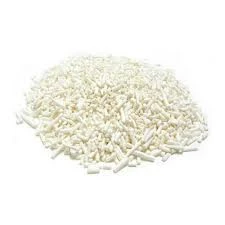
Exploring Food Emulsifiers and Their Diverse Applications in Culinary Innovation and Food Science
Food Emulsifiers and Their Applications
Food emulsifiers play a crucial role in the food industry, serving as key ingredients that stabilize mixtures of oil and water. These compounds reduce surface tension at the interface between the two phases, facilitating the combination of ingredients that would typically separate. Emulsifiers are crucial for the texture, consistency, and shelf life of various food products, making them indispensable in modern cooking and food production.
One of the most common emulsifiers is lecithin, found naturally in egg yolks and soybeans. Lecithin is widely used in products like mayonnaise, salad dressings, and baked goods. It helps create a smooth and creamy texture while ensuring that oil and water remain mixed, preventing separation. Additionally, lecithin is valued for its health benefits, contributing to improved heart health and cognitive function.
Another widely used emulsifier is mono- and diglycerides, typically derived from vegetable oils. These emulsifiers are versatile and can be found in a range of products such as margarine, baked goods, and frozen desserts. They not only stabilize emulsions but also extend the shelf life of products by preventing the crystallization of fats.
In the dairy industry, emulsifiers like sodium stearoyl lactylate and polysorbates are often employed to improve the texture and stability of products such as ice cream and cheese. These emulsifiers enhance the mouthfeel and prevent the formation of ice crystals, which is essential for maintaining the quality of frozen desserts. Furthermore, they help incorporate air into the product, contributing to a light and airy texture.
food emulsifiers and their applications

Emulsifiers also play a significant role in the production of sauces and creams. For instance, in the formulation of chocolate, emulsifiers like PGPR (polyglycerol polyricinoleate) are used to improve fluidity and facilitate the mixing of cocoa solids and fats, yielding a smooth and glossy finish. This application is vital for achieving high-quality chocolate products that meet consumer expectations.
In addition to their functional benefits, emulsifiers can enhance the nutritional profile of food products. For example, certain emulsifiers are capable of encapsulating vitamins and minerals, improving their bioavailability. This is particularly beneficial in functional foods that aim to deliver additional health benefits, making emulsifiers a key component in the development of innovative food products.
Despite the advantages they offer, the use of emulsifiers is sometimes scrutinized. Some consumers prefer products with fewer additives, prompting manufacturers to explore natural alternatives or reduce the amount of emulsifiers in their formulations.
In summary, food emulsifiers are essential ingredients in the food industry, contributing to the stability, texture, and shelf life of a variety of products. From baked goods to dairy items and sauces, these compounds enhance the quality and sensory experience of food. As consumer preferences shift towards cleaner labels, the food industry continues to adapt, seeking natural emulsifiers without compromising performance.
-
Pure Sodium Dichloroisocyanurate Dihydrate | Powerful DisinfectantNewsAug.29,2025
-
Industrial Chemicals: Quality & Purity for Every IndustryNewsAug.28,2025
-
Nitrile Rubber Honoring Strict Production StandardsNewsAug.22,2025
-
Aspartame Ingredients Honoring Food Safety ValuesNewsAug.22,2025
-
Fertilizer for Balanced Plant NutritionNewsAug.22,2025
-
Cyanide Gold Processing with High Purity AdditivesNewsAug.22,2025
-
Formic Acid in Textile Dyeing ApplicationsNewsAug.22,2025
Hebei Tenger Chemical Technology Co., Ltd. focuses on the chemical industry and is committed to the export service of chemical raw materials.
-

view more DiethanolisopropanolamineIn the ever-growing field of chemical solutions, diethanolisopropanolamine (DEIPA) stands out as a versatile and important compound. Due to its unique chemical structure and properties, DEIPA is of interest to various industries including construction, personal care, and agriculture. -

view more TriisopropanolamineTriisopropanolamine (TIPA) alkanol amine substance, is a kind of alcohol amine compound with amino and alcohol hydroxyl, and because of its molecules contains both amino and hydroxyl. -

view more Tetramethyl Thiuram DisulfideTetramethyl thiuram disulfide, also known as TMTD, is a white to light-yellow powder with a distinct sulfur-like odor. It is soluble in organic solvents such as benzene, acetone, and ethyl acetate, making it highly versatile for use in different formulations. TMTD is known for its excellent vulcanization acceleration properties, which makes it a key ingredient in the production of rubber products. Additionally, it acts as an effective fungicide and bactericide, making it valuable in agricultural applications. Its high purity and stability ensure consistent performance, making it a preferred choice for manufacturers across various industries.





